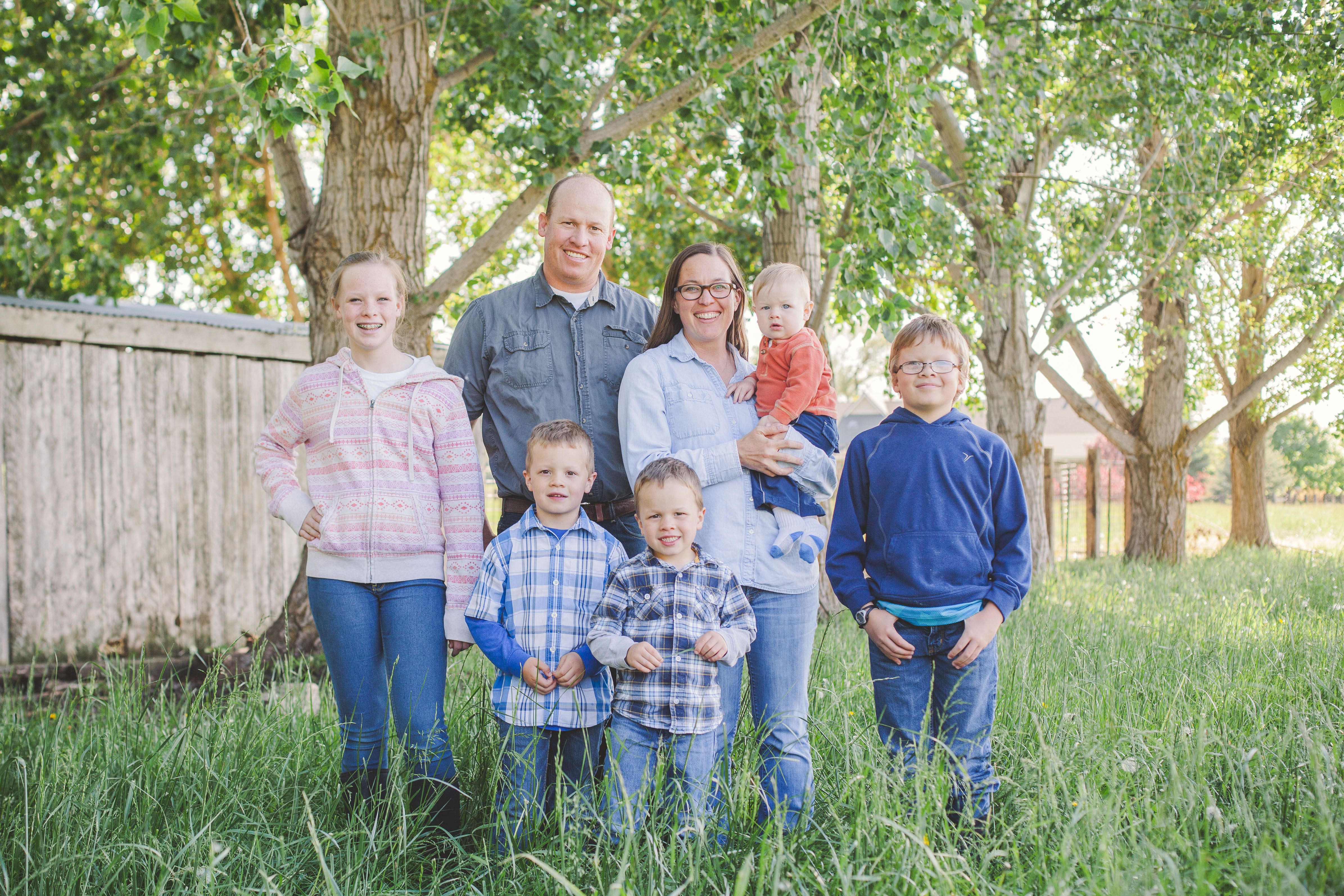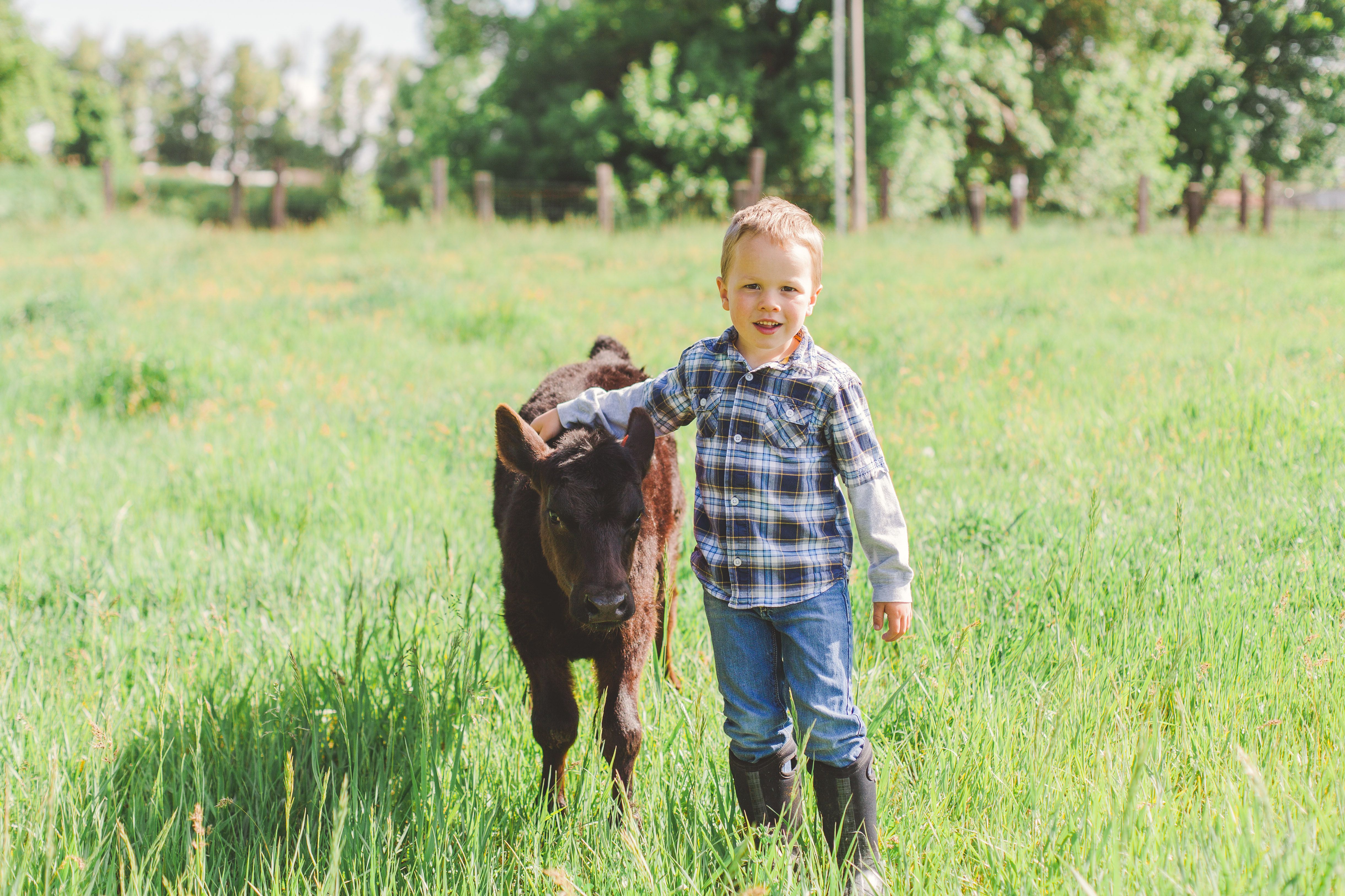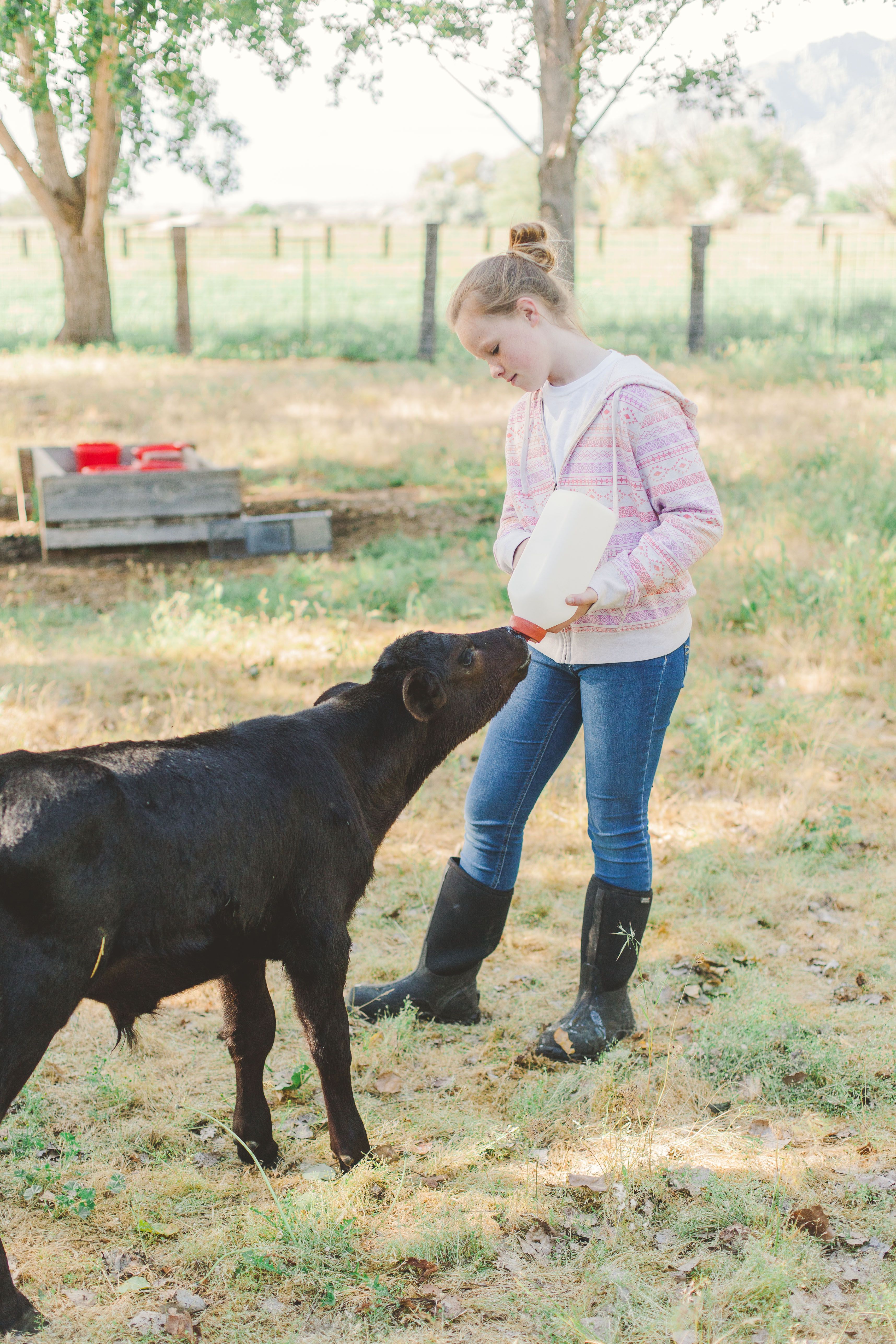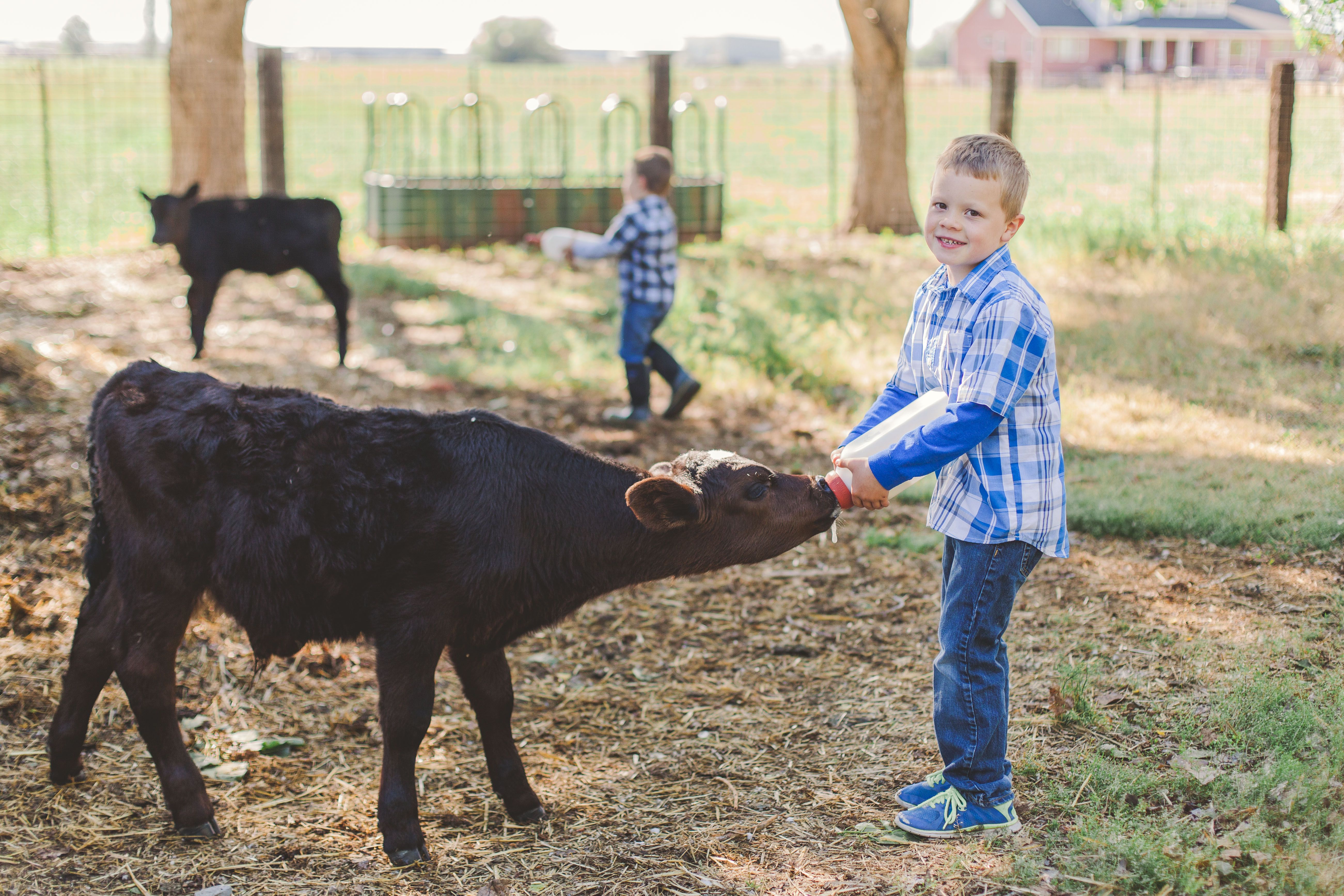Pasture to Plate: How beef is raised
Author
Published
4/10/2017
Springtime means new life, and on our ranch springtime means new calves. We raise Black Angus beef cattle and every spring our cows give birth to new calves. Our family has been ranching for five generations and we take pride in the animals we raise and the quality of beef we produce. We enjoy being part of the process of providing food for our family, friends and community.
Our kids help by caring for the bum calves from the ranch. Bum calves are young heifers or bulls which have been orphaned or abandoned, and need extra care because of a variety of reasons. If a calf gets especially sick or is not thriving, we nurse it back to health. If a cow abandons her calf, we bottle feed it. Typically a cow cares for only one calf so if she has twins, she keeps one and we care for the other. The calves are brought back to our barn so they can get personal care. They get bottles, heat lamps when it’s cold and medicine if they need it. We are like the calf hospital. They have shelter and access to pasture grass and water. These little calves grow up together and form their own herd with unique personalities. Cows are social animals and enjoy being together. They are smart and learn to trust those that care for them. In turn, our kids can identify the different calves out in the pasture even before they get close enough to see their ear tag.
As ranchers, we understand the privilege it is to grow food for others to eat. There are many different opinions on how food should be raised. Here are some of the things we’ve been asked about in raising beef.

Grass-fed vs Conventional (grain-finished) Beef:
All cows eat grass. The difference between grass fed beef and conventional beef is what cows eat as they mature. Conventionally raised cows eat grass until 12-18 months of age. Then they are taken to a feedlot where they eat a balanced diet of grains, grasses and different types of minerals for 4-6 months. Different breeding techniques and diets enable cattle to add weight efficiently. These practices are economical and keep the cost of beef down at the grocery store. Grass fed cattle continue to eat grass their entire lives, which can be six months or more than conventionally raised beef. One of the reasons why grass fed beef costs more is because of the limited grass growing seasons in North America. A cow’s diet can produce different types of nutrition in the beef. Some people prefer the nutrition available in grass fed beef while others prefer the taste of conventionally raised beef.
Hormones and Antibiotics:
Ranchers work closely with veterinarians to ensure animals are healthy. Some ranchers choose to give their cows growth hormones. The hormones are tested by the U.S. Food and Drug Administration (FDA) and have not been found to pose any health risks to consumers or cows since their debut on the market in the 1950s. These hormones help the cows grow more quickly and convert nutrients into lean muscle. All beef has naturally occurring hormones.

Just like people, animals can get sick. And just like people, antibiotics are only given to cure the illness and not as a daily practice. Cows given antibiotics are monitored by the U.S. Department of Agriculture, Food Safety and Inspection Service (FSIS), FDA, and Environmental Protection Agency (EPA). They set a withdrawal time for the antibiotics to ensure no residue is leftover in the cows. Consumers can be sure that no antibiotics are in their meat.

The beef cattle industry in Utah is thriving. It is our largest agricultural commodity. Beef is raised by families who make careful decisions about what’s best for their animals, the environment and for consumers. Informed consumers have many choices of what to eat and can know that beef is raised safely in many different ways. Whatever your personal preference, Utah ranchers provide a wide variety of beef that can all of us can enjoy. As for our family, we eat our conventionally raised beef. We give antibiotics when needed and sometimes choose to supplement with hormones. We love beef, and we love a lesser known slogan, “Eat beef. The west wasn’t won on salad!”

For references and more information check out factsaboutbeef.com.
Want more news on this topic? Farm Bureau members may subscribe for a free email news service, featuring the farm and rural topics that interest them most!
